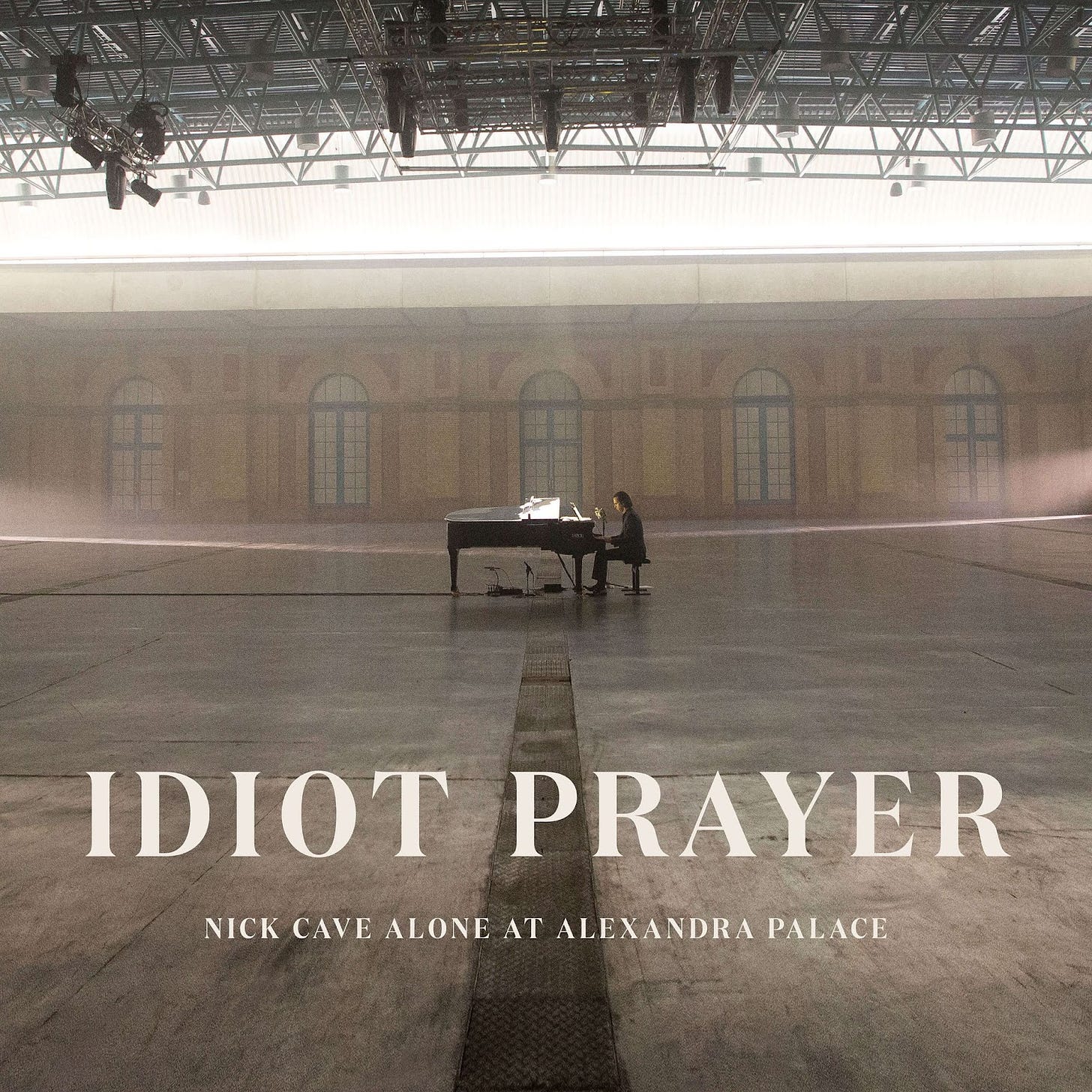Colin here. We are big Nick Cave fans here at WITI. In 2021, I wrote about his back and forth dialogue with his audience on the Red Hand Files, which remains one of the most interesting repositories of emotion, exchange and dialogue on the modern internet. When I was listening to his latest single, I also had a spin through some of his recent output.
I’ve since spent a lot of time with the album Idiot Prayer, recorded during the pandemic and performed live at the Alexandra Palace in London. It is, in short, stunning. Songs that I know inside and out, like Higgs Boson Blues, take on a different poignancy.
What also stands out to me is how great that goddamned piano sounds! Turns out I wasn’t the only one. Cave said:
“…There were limited pianos I could access during lockdown. There was, however, a Fazioli. I had never played one before but Dom Monks, the guy who recorded the Alexandra Palace performance, highly recommended this piano. The moment I sat down at the Fazioli, its warm, soft, nuanced sound spoke to me like no piano had spoken to me before. I was swept away by its extraordinary tonal range. It whispered to me. It roared at me. It was the most beautiful instrument I had ever played.”
Why is this interesting?
Obviously, I had to dig into what Fazioli was and what it was all about. The brand makes luxury instruments and the starting point as far as I can determine is around $150,000. The company was founded by engineer and pianist Paolo Fazioli, and has made pianos since 1981 in Sacile, Italy—a commune known for its woodworking craft and talent. Each piano takes three years to build. The sound, increasingly in demand by the best musicians, is known as bright and balanced.
Mr. Faziolo told Nuvo magazine:
“To make a piano is not easy—it is a complex instrument,” says Paolo. “There is a physical component, and it requires knowledge in physics and technology. There is also the artistic component. You need both.”
The piece also details some of the sonic nuance which makes the instrument so appealing:
The Fazioli objective is centered on pleasing the discerning ear, creating a piano tone that enables even harmonic components, and thus allowing players to go from a triple pianissimo to a triple fortissimo without muddying the sound, plus the ability to distinguish every tone individually.
The result on this particular Cave recording is singular. One man, playing in a huge, expansive place (a vivid metaphor for the enforced distancing and isolation of the year he was working in), and a powerful piano. The result can knock you off your seat. (CJN)
–
Thanks for reading,
Noah (NRB) & Colin (CJN)
—
Why is this interesting? is a daily email from Noah Brier & Colin Nagy (and friends!) about interesting things. If you’ve enjoyed this edition, please consider forwarding it to a friend. If you’re reading it for the first time, consider subscribing (it’s free!).



